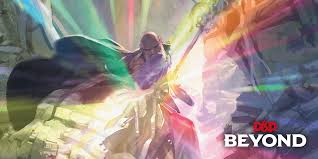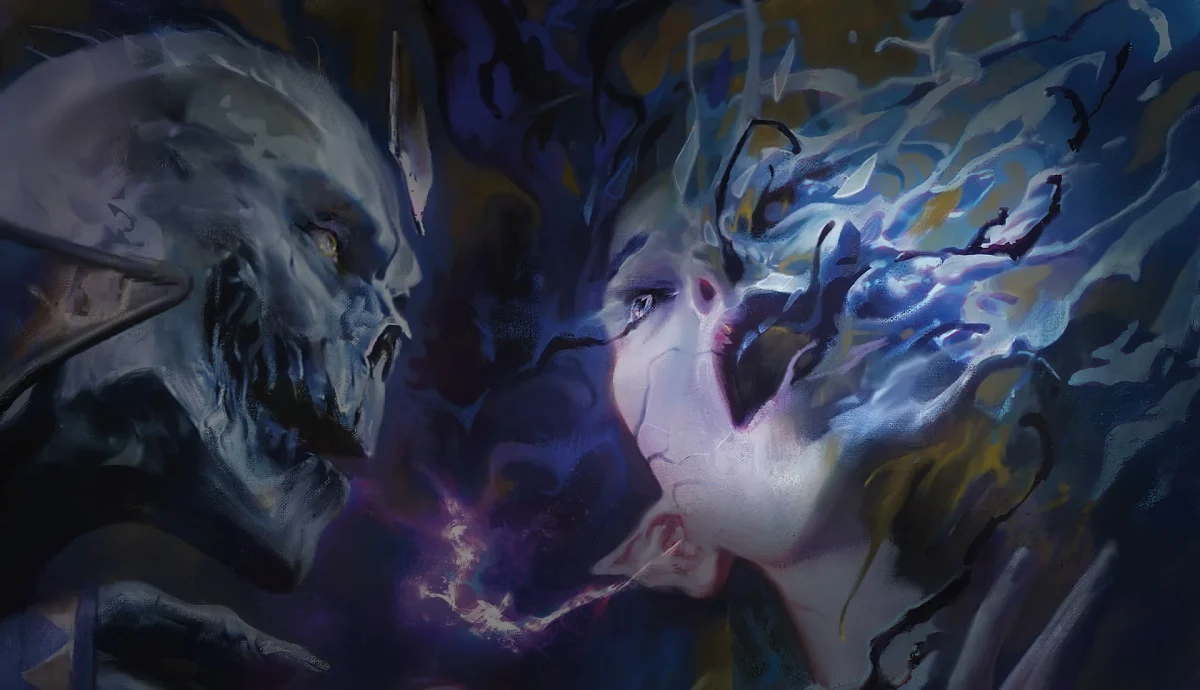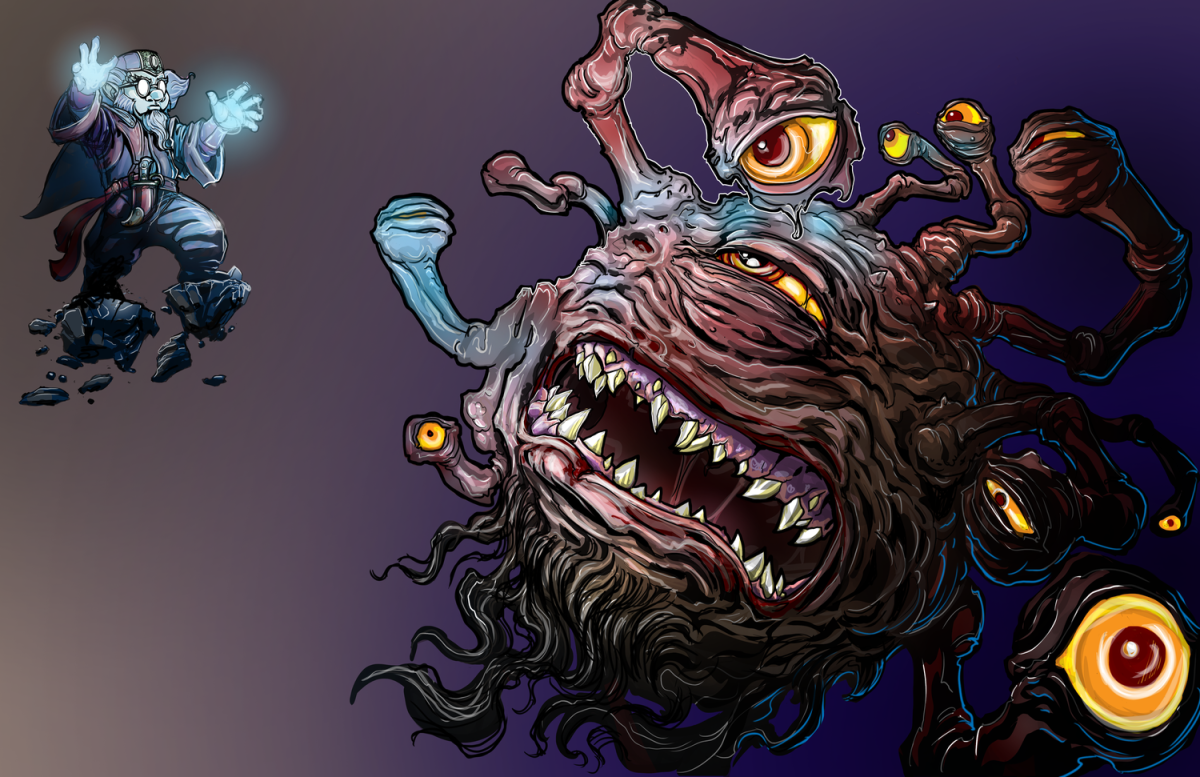The Sorcerer class in Dungeons & Dragons 5th Edition (D&D 5E) is for players who want to embody innate magical power. Unlike Wizards who study magic or Warlocks who make pacts, Sorcerers are born with magic flowing through their veins. Whether it’s a gift from a dragon ancestor, a blessing of wild magic, or a mark of celestial favor, Sorcerers are potent spellcasters with a deep connection to their magical abilities. This guide will help you create and play a Sorcerer, from choosing your origin to casting powerful spells in battle.
What is a Sorcerer in D&D 5E?
Sorcerers are full casters, specializing in raw magical power. Their magic is tied to their Sorcerous Origin, a source of innate magic, which defines their abilities and playstyle. Unlike most casters, Sorcerers gain access to Metamagic, which allows them to alter and enhance their spells in unique ways, making them one of the most versatile and customizable casters in the game.
Step-by-Step Guide to Creating a Sorcerer
1. Choose Your Sorcerous Origin
Your Sorcerous Origin is your subclass, and it determines the source of your character’s magical abilities. Each origin has a distinct theme and playstyle:
- Draconic Bloodline: Your magic comes from the blood of a dragon ancestor. Draconic Sorcerers have increased durability and can deal extra elemental damage, depending on the type of dragon.
- Wild Magic: You wield chaotic, unpredictable magic that can cause random and powerful effects. This origin is for players who enjoy taking risks and adding a bit of chaos to their spellcasting.
- Divine Soul: Blessed by a divine entity, your magic is both arcane and holy. You have access to the Cleric spell list, making you a versatile healer and blaster.
- Shadow Magic: Your power is connected to darkness and the Shadowfell. Shadow Sorcerers gain special defensive abilities, darkvision, and even the power to avoid death.
- Storm Sorcery: You’re attuned to the elemental power of storms, with abilities that allow you to control weather, wind, and lightning. This origin is for players who want a theme of tempestuous energy.
Each origin has different abilities and a unique flavor, so choose the one that excites you the most. Think about how this source of magic affects your Sorcerer’s personality and goals.
2. Choose Your Race
When creating a Sorcerer, picking a race that boosts Charisma (your spellcasting ability) will make you a more effective caster. Some good choices include:
- Half-Elf: Gains a bonus to Charisma and two other abilities, plus extra skills. It’s a very flexible choice for any Sorcerer build.
- Tiefling: Comes with a Charisma bonus, resistance to fire damage, and some useful spells like Hellish Rebuke and Darkness, adding to your versatility.
- Aasimar: Offers a Charisma bonus, radiant damage resistance, and healing abilities, which complement a Divine Soul Sorcerer especially well.
- Variant Human: Offers a bonus to Charisma and a feat at 1st level, which can be a huge boost to customization.
3. Ability Scores and Skills
Your primary ability score as a Sorcerer should be Charisma, as it fuels your spellcasting and enhances many of your class abilities. After Charisma, prioritize Constitution for extra hit points and maintaining concentration on spells. Dexterity is also valuable, especially if you want to improve your Armor Class and ability to dodge attacks.
A sample ability score priority for a Sorcerer might look like this:
- Charisma (for spellcasting power)
- Constitution (for durability and concentration)
- Dexterity (for better AC and initiative)
For skills, consider:
- Arcana: Useful for understanding magical lore and spells.
- Persuasion: Your high Charisma makes you naturally good at social interactions.
- Deception or Intimidation: Perfect for Sorcerers who want to talk their way out of trouble or influence others.
4. Sorcerer Class Features
The Sorcerer has unique class features that set it apart from other spellcasters. These are the backbone of your magical abilities and customization options.
- Spellcasting: Sorcerers know fewer spells than other casters, but their spells are cast at the highest level they can manage, making them powerful when they need to be.
- Sorcery Points: Starting at 2nd level, you gain Sorcery Points that you can spend to cast more spells or fuel your Metamagic options.
- Font of Magic: You can convert Sorcery Points to additional spell slots, giving you more flexibility in how many spells you can cast each day.
- Metamagic: Beginning at 3rd level, you can choose Metamagic options, which allow you to modify spells in unique ways, such as casting them at a longer range, splitting them between multiple targets, or casting without a verbal or somatic component.
5. Choose Your Spells
Sorcerers know fewer spells than other casters, but they are potent. Since you can’t easily change your spells, choose a versatile selection that covers offense, defense, and utility.
Key Spells for Sorcerers:
- Cantrips: Fire Bolt (damage), Ray of Frost (slows enemies), Prestidigitation (utility), and Minor Illusion (trickery).
- 1st-level Spells: Shield (defense), Magic Missile (reliable damage), Mage Armor (if you don’t have a high Dexterity), and Chromatic Orb (versatile elemental damage).
- 2nd-level Spells: Mirror Image (defense), Hold Person (control), Invisibility (utility), and Scorching Ray (multiple target damage).
- 3rd-level Spells: Counterspell (essential defense), Fireball (area damage), Fly (mobility), and Haste (buff).
Pick spells that fit the theme of your character and that will give you a mix of offensive, defensive, and utility options in different situations. You won’t have many spells known, so choose carefully.
Playing a Sorcerer: Role-Playing and Combat
1. Role-Playing Your Sorcerer
Sorcerers have a personal and powerful connection to their magic, which often impacts their personality and worldview. Consider:
- How did your character discover their magic? Was it a surprise, or something they always knew?
- Do they see their magic as a blessing or a curse? Are they proud, cautious, or even afraid of their abilities?
- How does your Sorcerous Origin affect them? A Draconic Sorcerer might have a dragon’s arrogance, while a Wild Magic Sorcerer might be wary of their own power.
Your character’s relationship with magic can shape how they interact with the world and their allies. Sorcerers are natural leaders and often stand out because of their innate power.
2. Combat Strategy
Sorcerers are powerful spellcasters, but they have low hit points and armor class. Staying out of melee range is critical to survival, so plan your positioning carefully.
- Damage Dealing: Fireball is one of the best area-of-effect spells in the game and is ideal for clearing out groups of enemies. Scorching Ray and Chromatic Orb are also great single-target damage spells.
- Crowd Control: Spells like Hold Person, Web, and Slow can lock down enemies, giving your team a huge advantage.
- Metamagic in Combat: Metamagic options like Twinned Spell (which lets you target two creatures with a single-target spell) and Quickened Spell (which allows you to cast a spell as a bonus action) can turn the tide of battle. Use Subtle Spell to cast without components, useful for bypassing Counterspell or casting in situations where you might be restrained.
3. Maximize Metamagic
Metamagic is the Sorcerer’s signature ability, allowing you to tweak your spells in various ways. Some popular Metamagic options include:
- Twinned Spell: Perfect for spells like Hold Person or Haste, allowing you to target an additional creature.
- Quickened Spell: Enables you to cast spells as a bonus action, letting you deal more damage in one turn or cast a buff spell without losing your action.
- Careful Spell: Useful for area-of-effect spells like Fireball, allowing allies within the blast radius to avoid the spell’s effect.
- Distant Spell: Great for utility spells like Message, allowing you to communicate or reach further targets.
Choosing the right Metamagic to complement your spells can turn you into a versatile and formidable force on the battlefield.
4. Use Sorcery Points Wisely
Sorcery Points are limited, so use them strategically. If you’re running low on spell slots, you can convert Sorcery Points to create more, but keep some in reserve for Metamagic. Finding a balance between using Sorcery Points for extra spells and enhancing your spells with Metamagic is key to maximizing your Sorcerer’s effectiveness.
Conclusion
The Sorcerer in D&D 5E is an exceptional class, combining raw magical power with unique customizability through Metamagic and Sorcery Points. With a variety of Sorcerous Origins to choose from, each Sorcerer can feel unique and personal. Embrace the power within you, wield spells with creativity, and use your innate magic to shape the battlefield to your will. Happy adventuring, Sorcerers!











